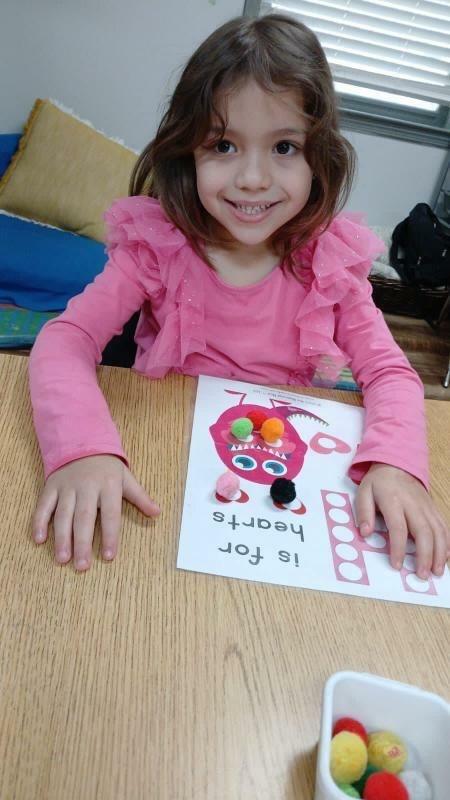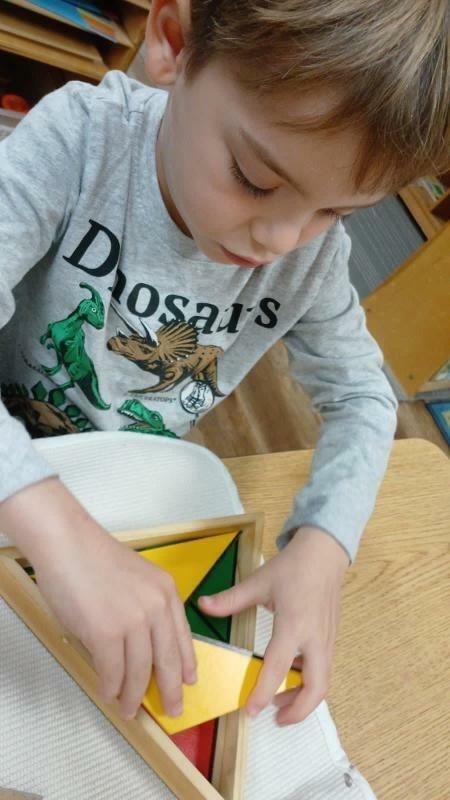
Caption
Mireloi Reis' daughter Aysha benefits from after-hours care at Creative Labs Learning Center in Alpharetta, Ga.
Credit: Summaya Adam / Creative Labs Learning Center
LISTEN: The Georgia Department of Early Care and Learning is distributing federal funds to expand after-hours day care. But it's only temporary. GPB's Orlando Montoya explains.

Mireloi Reis' daughter Aysha benefits from after-hours care at Creative Labs Learning Center in Alpharetta, Ga.
Parents know how hard it can be to arrange for child care. That’s especially true for caregivers who work night shifts or on weekends.
But not all child care providers are open during non-traditional working hours.
A Georgia effort is expanding available options, including at Creative Labs Learning Center in Alpharetta, north of Atlanta.
Summaya Adam directs the day care center, where kids play in brightly colored rooms and workers oversee time outdoors.
“For a facility like this, there’s cost involved,” she said. “So it’s not very common.”
Day care centers like Creative Labs can be a lifeline for busy parents. But they aren’t typically open before 7 a.m. or after 6 p.m. on weekdays or anytime on the weekend.
A national survey of early care and education from 2015 says only about 1 in 12 day care centers are open during non-traditional hours. Smaller, home-based providers and unpaid child care workers, like family members, increase the options for some parents.
But availability isn’t always guaranteed. And there are still many days when Mireloi Reis has to choose between taking care of her 5-year-old twins and accepting work.
“I work with party planning and decorations,” she said. “So usually, the planning and the background work is during the week, which works well with their school hours. But usually, the parties, most parties, are on the weekends.”
She says she’s turned down plenty of work to take care of her kids, Aydin and Aysha. And since their father works in trucking, it’s hard for him to take off work, as well. That puts a financial burden on their family.
“There was a lot of juggling with the kids and not just being able to take on everything that I want to take on,” she said. “But now it’s better.”
That’s because Reis is one of many parents now enrolling their kids in non-traditional hours care at Creative Labs.
It’s one of several places around the state where child care is now available during those hours because of federally funded grants from the Georgia Department of Early Care and Learning (DECAL).
The agency’s director of community partnerships, Jill Taylor, says the main reason child care is hard to find after hours comes down to money.

Mireloi Reis' son Aydin benefits from after-hours care at Creative Labs Learning Center in Alpharetta, Ga.
“Even a small adjustment to a child care provider’s operating hours can come at considerable cost,” she said.
But the main reason Congress included child care in 2020 pandemic relief legislation, where the federal funding comes from, also comes down to money.
“The availability of high-quality child care and early education plays a key role in Georgia’s workforce development,” she said.
Less child care equals fewer work opportunities for parents.
The agency’s grants range from $50,000 to $750,000 and are going to seven individual child care providers, such as Creative Labs, and six larger child care collaborative programs, like those overseen by Atrium Health in Macon and Columbus Technical College, across the state.
But the grants are a pilot program, lasting only for one year.
Will that mean Creative Labs and the other grantees will pull back their hours once the funding ends?
DECAL’s Taylor says she doesn't know — but that the grants are aimed at sparking conversations about long-term solutions.
Adam already is having those conversations.
“By having that marketing going, by having the staffing in place, by having those families reach out and then talk to other families, we would like for this to continue and not just be like ‘Okay, we’re done’ kind of thing” she said. “This should be something that’s established in the community and that’s what we’re going after, where people are now coming to us and going, ‘Hey, do you have this?’”
Thanks to federal funding, she and 12 other grantees have it — for now.